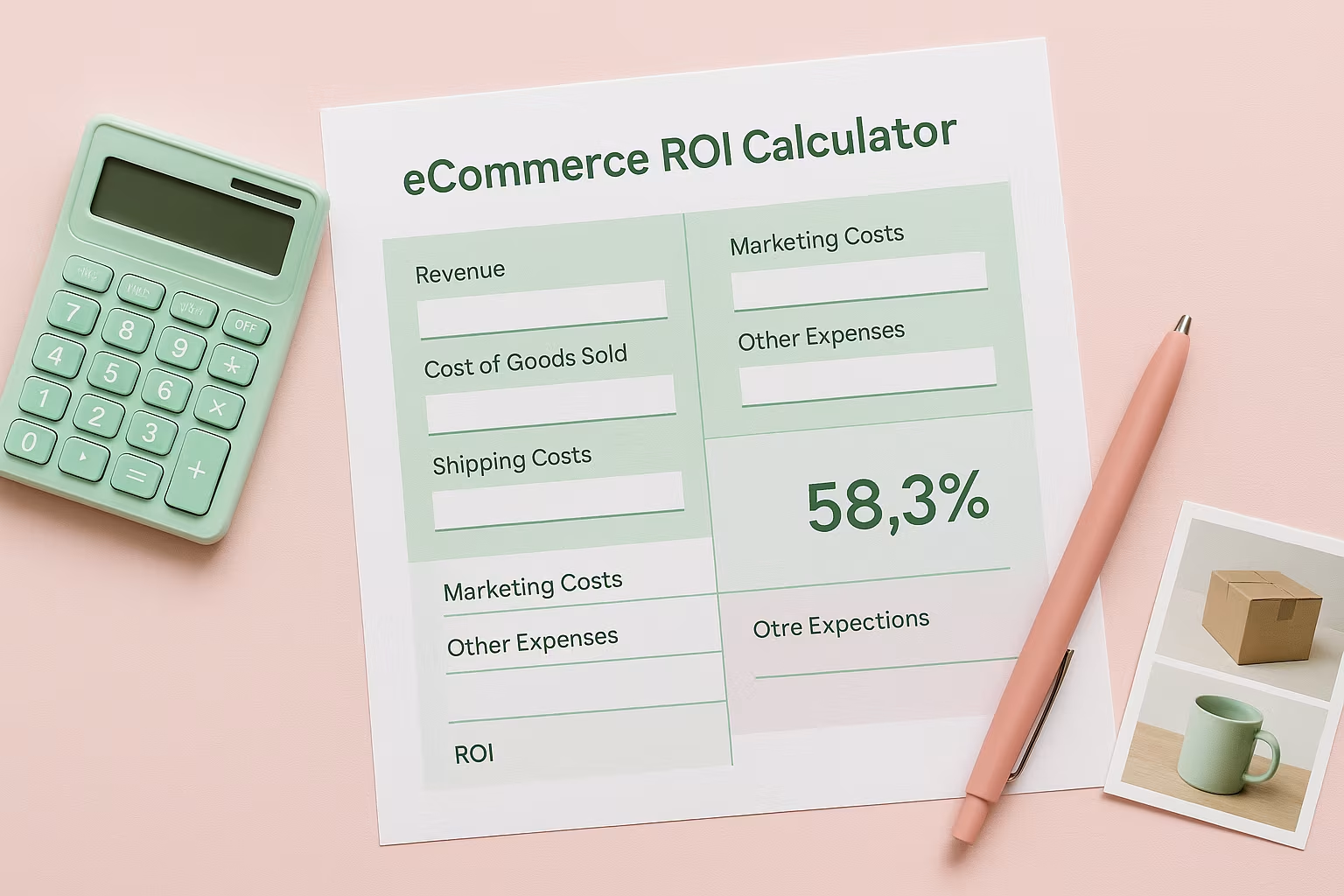What Certifications Are Needed for Skincare Products: Regulatory Roadmap
%20(1).avif)
Did you know that skincare products labeled as "certified organic" or "natural" can command price premiums up to 25% higher than their conventional counterparts?
Behind every successful skincare brand is a carefully navigated landscape of essential certifications and regulatory compliance.
From mandatory FDA guidelines to powerful voluntary seals like organic, cruelty-free, and sustainable certifications, understanding and strategically leveraging these certifications can significantly boost your brand's credibility and market success.
This guide provides a comprehensive roadmap to help you navigate the complex world of skincare product certifications, enabling your brand to stand out and thrive in a competitive marketplace.
Skincare Product Certifications: Regulatory Frameworks vs. Market Differentiators
Before diving into specific certifications, it's important to distinguish between mandatory regulations and voluntary certifications for skincare products.
Mandatory Regulations
Mandatory regulations are government-enforced rules that all skincare products must meet to be legally sold in a specific market. These aren't optional and failure to comply can result in serious consequences:
- Product recalls
- Monetary penalties
- Legal action
- Damage to brand reputation
- Market access restrictions
In the United States, skincare products are primarily regulated by the Food and Drug Administration (FDA) under the Federal Food, Drug, and Cosmetic Act (FD&C Act) and the Fair Packaging and Labeling Act (FPLA).
Contrary to popular belief, the FDA doesn't "approve" cosmetics before they hit the market—instead, manufacturers are responsible for ensuring their products are safe and properly labeled.
It's crucial to understand that while skincare products don't require FDA pre-approval before marketing (unlike drugs), they still must comply with all applicable regulations.
The distinction between "FDA approved vs FDA compliant" is an important nuance that many new skincare entrepreneurs misunderstand, so make sure to get informed about it on time.
Voluntary Certifications
Voluntary certifications are market-driven standards that brands can choose to pursue to demonstrate additional qualities of their products:
- Ethical sourcing practices
- Environmental sustainability
- Absence of specific ingredient groups
- Adherence to specific manufacturing standards
- Specialized testing protocols
While not legally required, these certifications often provide significant market advantages, particularly when targeting specific consumer segments who prioritize certain attributes in their skincare products.
FDA Compliance Requirements for Skincare Products
Any skincare product sold in the US market must comply with FDA regulations. Here's what compliance entails:
Product Safety
All ingredients must be safe for their intended use under labeled or customary conditions. This means:
- Raw materials must meet purity standards
- Preservative systems must prevent microbial growth
- Products must be manufactured under sanitary conditions
- Stability testing must verify shelf-life claims
Proper Labeling
Labels must include:
- Product identity
- Net quantity of contents
- Name and place of business of manufacturer, packer, or distributor
- Complete ingredient list in descending order of predominance
- Any required warnings
Cosmetic vs. Drug Claims
The FDA categorizes products based on their intended use. Making certain claims can change your product's classification:
- Cosmetic claims focus on beautifying, cleansing, or altering appearance
- Drug claims involve treating or preventing disease or affecting body structure/function
Products making drug claims must meet additional requirements, including pre-market approval.

Carefully review all marketing materials, including packaging, websites, and social media, to ensure claims remain within cosmetic boundaries unless you're prepared to meet drug regulations.
GMP Certification: The Quality Foundation for Credible Brands
While the FDA doesn't technically require GMP certification for cosmetics (unlike for drugs), following GMP principles is practically essential for ensuring product safety and quality.
ISO 22716 Certification
The international standard for cosmetic GMP is ISO 22716, which provides guidelines for:
- Facility and equipment design
- Raw material management
- Production processes
- Quality control procedures
- Personnel training
- Documentation requirements
Achieving ISO 22716 certification demonstrates your commitment to maintaining high-quality manufacturing standards. Many contract manufacturers who specialize in private-label skincare already maintain this certification, simplifying compliance for brands that work with established manufacturing partners.
Benefits of GMP Compliance
- Reduced risk of contamination and product quality issues
- Consistent product performance
- Enhanced traceability for potential recalls
- Increased retailer acceptance (many major retailers require GMP)
- Foundation for international market access
The Certification Gap: What Most Skincare Brands Miss
While basic regulatory compliance receives attention from most brands, research shows that many skincare entrepreneurs overlook a critical consideration: certification strategy alignment with their target audience's values.
Different consumer segments prioritize vastly different certifications:
- Millennials and Gen Z show strong preference for ethical certifications (cruelty-free, vegan)
- Health-focused consumers prioritize "free-from" certifications
- Sustainability-minded shoppers look for environmental impact certifications
- Prestige skincare buyers often value origin certifications
The most successful brands align their certification investments with their specific customer base rather than pursuing certifications indiscriminately.
International Market Certifications
Different regions have their own regulatory frameworks for skincare products. If you plan to sell internationally, you'll need to comply with each market's specific requirements.
European Union (EU) Requirements
The EU has some of the strictest cosmetic regulations globally under the Cosmetic Products Regulation (EC) No 1223/2009:
- Product Information File (PIF) requirement
- Cosmetic Product Safety Report
- Cosmetic Product Notification Portal (CPNP) registration
- Responsible Person designation within the EU
- Compliance with ingredient restrictions and bans
- Conformity with special labeling requirements
The EU bans approximately 1,400 ingredients in cosmetics (compared to just 11 in the US), making its standards particularly rigorous.
Other International Markets
- Canada: Requires notification through the Cosmetic Notification Form (CNF)
- China: Mandatory animal testing for most imported cosmetics (though recent changes have created some exemptions)
- Japan: Compliance with the Japanese Standards for Cosmetics Ingredients
- Australia: Listing on the Australian Register of Therapeutic Goods for products with therapeutic claims
Voluntary Certifications for Marketing Differentiation
Beyond regulatory compliance, voluntary certifications can help differentiate your skincare brand in the marketplace.
Organic Certifications
Multiple organic certifications exist with varying standards:
- USDA Organic: Products must contain at least 95% organically produced ingredients (excluding water and salt)
- COSMOS Organic: European standard for organic and natural cosmetics
- ECOCERT: Requires a minimum of 95% natural ingredients and a minimum of 10% organic ingredients
- NSF/ANSI 305: Standard for organic personal care products
Natural and Clean Beauty Certifications
- COSMOS Natural: For products with natural ingredients but not meeting organic thresholds
- NATRUE: Three-level natural cosmetics certification
- EWG Verified: Products free from EWG's "chemicals of concern"
- Clean at Sephora: Meets Sephora's standards for products without specific ingredient groups
Ethical and Sustainability Certifications
- Leaping Bunny: Certifies cruelty-free products with no animal testing
- PETA Cruelty-Free: Alternative cruelty-free verification
- Fair Trade: Ensures ethical sourcing of ingredients
- B Corp Certification: Verifies social and environmental performance
Specialized Market Certifications
- Halal: Compliance with Islamic law for ingredients and manufacturing
- Kosher: Meets Jewish dietary laws for ingredients
- Vegan: Contains no animal-derived ingredients
When starting a skincare line, carefully consider which certifications align with your brand values and target market preferences. Each certification requires investment in compliance, documentation, and often recurring audit fees.

Essential Testing Requirements for Skincare Products
Safety and stability testing are essential for skincare products, regardless of certification requirements.
Microbial Testing
Tests for harmful microorganisms, including:
- Total aerobic microbial count
- Yeast and mold count
- Specific pathogen absence (E. coli, P. aeruginosa, S. aureus)
Preservative Efficacy Testing (Challenge Testing)
Validates that your preservative system protects against microbial contamination during product use. Involves:
- Introducing microorganisms to the product
- Measuring reduction over time
- Typically requires reduction by a specified log value within a certain timeframe
Stability Testing
Ensures product quality throughout its intended shelf life:
- Accelerated aging (higher temperatures to predict longer-term stability)
- Real-time stability (actual shelf-life confirmation)
- Freeze/thaw cycling (for products that might experience temperature fluctuations)
Safety Testing
- Patch testing: Identifies potential skin irritation or allergic reactions
- HRIPT (Human Repeat Insult Patch Test): Gold standard for confirming hypoallergenic claims
- RIPT (Repeat Insult Patch Test): Similar to HRIPT but with different protocols
- SPF testing: Required for any sun protection claims
Certification Investment: Understanding the Real Costs
Navigating certification requirements involves various costs and considerations that extend beyond just application fees.
Direct Costs
- Application fees
- Initial certification audits
- Annual renewal fees
- Testing and analysis expenses
- Consultant fees (if needed)
Indirect Costs
- Reformulation (if needed to meet standards)
- Documentation development
- Staff training
- Quality management systems
- Potential manufacturing process changes
Certification Strategy Tips
- Prioritize certifications based on target market: Focus on certifications your specific customers value most
- Start with compliance basics: Ensure FDA/regulatory compliance before pursuing voluntary certifications
- Consider manufacturing partnerships: Working with experienced private-label cosmetics manufacturers can simplify certification processes as they often maintain relevant certifications
- Plan for international expansion early: Building products to meet stricter standards initially (like EU requirements) makes later market expansion easier
- Budget realistically: Include certification costs in your product pricing strategy
Building a Strategic Certification Roadmap
Every skincare brand's certification journey will be unique based on products, target markets, and brand positioning. Here's a suggested approach to developing your certification strategy:
- Define your minimum compliance requirements based on your markets
- Identify which voluntary certifications align with your brand values
- Research certification requirements, timelines, and costs
- Prioritize certifications based on marketing impact and resource requirements
- Develop a phased implementation plan
- Build relationships with certification bodies and consultants
- Partner up with fulfillment companies that understand certification requirements
The Skincare Shadow Market: The Phenomenon No One Discusses
Beyond the visible competitive landscape lies what industry insiders call the "skincare shadow market" – a fascinating ecosystem that operates alongside mainstream channels yet remains largely undiscussed in market analyses.
This shadow market consists of small-batch artisanal producers, often operating through private client lists and invitation-only purchasing models.
These ultra-exclusive formulators typically serve fewer than 500 clients globally, with waiting lists stretching 6-18 months. Their products rarely appear on social media, eschew traditional marketing, and spread exclusively through whispered recommendations among celebrity makeup artists, dermatologists, and high-profile clients.
What makes this shadow market particularly intriguing is its influence on mainstream product development. Industry research suggests that up to 35% of "breakthrough" ingredients in commercial skincare originated in these exclusive formulations, typically appearing in the shadow market 3-4 years before mainstream adoption.
Perhaps most fascinating is how these shadow formulators source ingredients. Many maintain direct relationships with specialized botanical growers who cultivate plants specifically for skincare properties rather than commercial yield. Others partner with academic laboratories researching compounds never intended for cosmetic applications.
From Compliance to Competitive Advantage
In the crowded skincare marketplace, the right certifications transform from mere compliance checkboxes into powerful competitive advantages.
The most successful brands don't view certifications as burdensome requirements but rather as strategic tools for building consumer trust and accessing premium retail channels.
Remember that certifications should support your overall brand story and values rather than defining them.
Focus first on creating exceptional products that deliver on your brand promises, then pursue the certifications that will help communicate your product's value proposition most effectively to your target audience.
The right certification strategy becomes a cornerstone of brand credibility, opening doors to retail partnerships, international markets, and the growing segment of consumers who make purchasing decisions based on verified product attributes beyond just performance claims.
FAQ
Related blogs

Price Elasticity Of Demand Calculator: Predict Revenue Impact in Seconds

Chargeback ROI Calculator: Predict Your Savings and ROI in Under 10 Seconds

Break-Even ROAS Calculator: Find Out What You Can Afford to Spend on Ads


